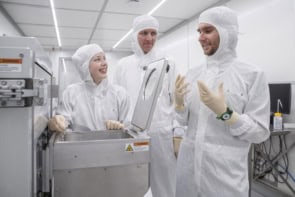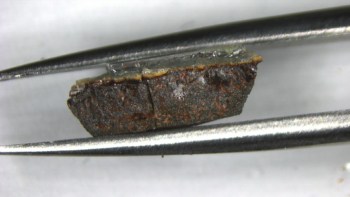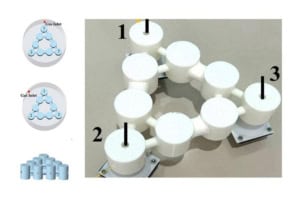A team of chemists in the US has discovered the first organic molecule that breaks Hund’s rule. The molecule has three unpaired electrons in its ground state – an arrangement that has only previously been observed in molecules that contain transition metals. The breakthrough could lead to the development of new non-metallic magnets made from polymers and hydrocarbons (L Slipchenko et al. 2004 Angew. Chem. Int. Ed. 43 742).

Hund’s rule states that electrons occupy orbitals one at a time before they begin to pair up, and that all the electrons in singly occupied orbitals point in the same direction. Although Hund’s rule can be violated in transition-metal complexes, such behaviour had never been observed in a non-transition metal compound until now.
Paul Wenthold of Purdue University, Anna Krylov of the University of Southern California (USC) and co-workers made the molecule – called 5-dehydro-m-xylylene or ‘DMX’ – by reacting a xylene compound with fluorine. When they used mass spectrometry to analyse the structure they found that one of the three unpaired electrons in the molecule pointed in an opposite direction to the other two.
Molecules that contain unpaired electrons are more reactive than other molecules and are known as radicals. “This is the first time we’ve seen this happen in an organic tri-radical,” said Wenthold. “It opens up a few new possibilities for materials designers.”
These possibilities include using the compound to make molecular magnets, says Krylov. “People are already trying to build magnets from materials other than metals, such as polymers,” she said. “Since magnetism is related to the behaviour of unpaired electrons, this compound could be used as a building block for such polymers, leading to non-metallic magnets.”
The team now plans to study the molecule in more detail. “The unique property this substance exhibits will be of interest in its own right – even before we come up with any actual applications for it,” said Wenthold.



